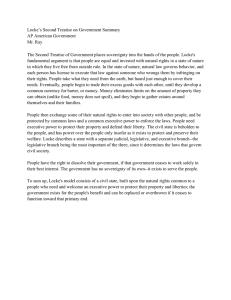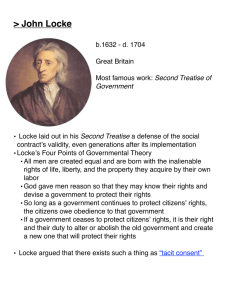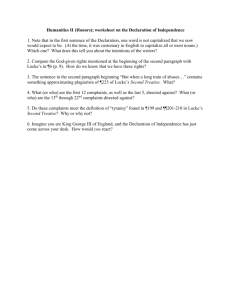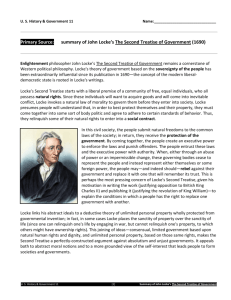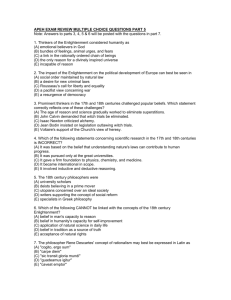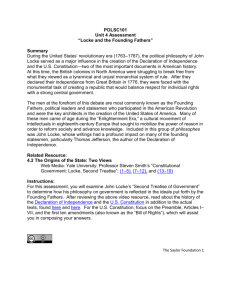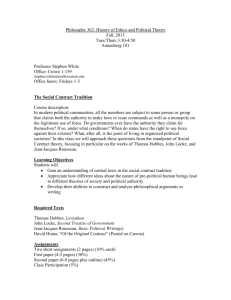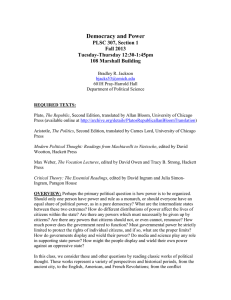Reading Assignment Questions- First Semester (from McKay
advertisement
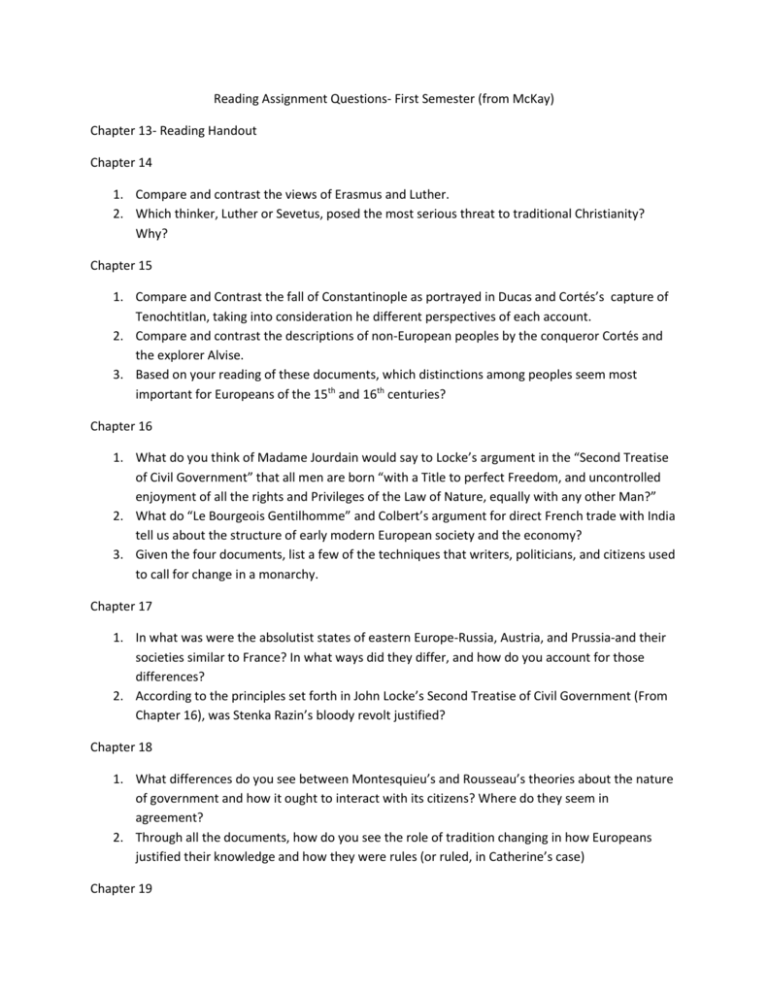
Reading Assignment Questions- First Semester (from McKay) Chapter 13- Reading Handout Chapter 14 1. Compare and contrast the views of Erasmus and Luther. 2. Which thinker, Luther or Sevetus, posed the most serious threat to traditional Christianity? Why? Chapter 15 1. Compare and Contrast the fall of Constantinople as portrayed in Ducas and Cortés’s capture of Tenochtitlan, taking into consideration he different perspectives of each account. 2. Compare and contrast the descriptions of non-European peoples by the conqueror Cortés and the explorer Alvise. 3. Based on your reading of these documents, which distinctions among peoples seem most important for Europeans of the 15th and 16th centuries? Chapter 16 1. What do you think of Madame Jourdain would say to Locke’s argument in the “Second Treatise of Civil Government” that all men are born “with a Title to perfect Freedom, and uncontrolled enjoyment of all the rights and Privileges of the Law of Nature, equally with any other Man?” 2. What do “Le Bourgeois Gentilhomme” and Colbert’s argument for direct French trade with India tell us about the structure of early modern European society and the economy? 3. Given the four documents, list a few of the techniques that writers, politicians, and citizens used to call for change in a monarchy. Chapter 17 1. In what was were the absolutist states of eastern Europe-Russia, Austria, and Prussia-and their societies similar to France? In what ways did they differ, and how do you account for those differences? 2. According to the principles set forth in John Locke’s Second Treatise of Civil Government (From Chapter 16), was Stenka Razin’s bloody revolt justified? Chapter 18 1. What differences do you see between Montesquieu’s and Rousseau’s theories about the nature of government and how it ought to interact with its citizens? Where do they seem in agreement? 2. Through all the documents, how do you see the role of tradition changing in how Europeans justified their knowledge and how they were rules (or ruled, in Catherine’s case) Chapter 19 1. What do you think Adam Smith would say about “the spirit of monopoly” of which Turgot explains? 2. How does Turgot’s definition of “property” differ from that of John Locke, as expressed in the “Second Treatise of Civil Government (Chapter 16)? Chapter 20 1. What can be gleaned from William’s and Wesley’s accounts about the prevalence and nature of religious belief in 18th century? 2. What can be gleaned from Williamson’s, Locke’s, and Montagu’s accounts about attitudes toward children in the late 17th and 18th centuries? Chapter 21 1. Based on “The Declaration of the Rights of Man,” Mary Wollstonecraft’s argument, and Toussaint L’Ouverture’s letter, what were the limits on the liberty and equality promised by the revolution? 2. In what ways does Rousseau’s “Social Contract” (chapter 18) seem to have influenced the writing of the Cahier and the “Declaration of the Rights of Man?” How have the citizens of France departed from his thinking? Chapter 22 1. What do you think Robert Owen thought of the Luddites, and why? 2. Compare Owen’s views on child labor with those of John Aikin, What might account for the differences between the two? 3. How might Adam Smith (Chapter 19) respond to the new manufacturing processes and machinery that Aikin describes? Chapter 23 1. In the 18th century, protectionism in the form of mercantilistic policies to discourage foreign trade and encourage domestic self sufficiency was default economic policy. What do Marx and Engels’s and Cobden’s arguments suggest about early mid-19th century attitudes towards protectionism in Britain?

